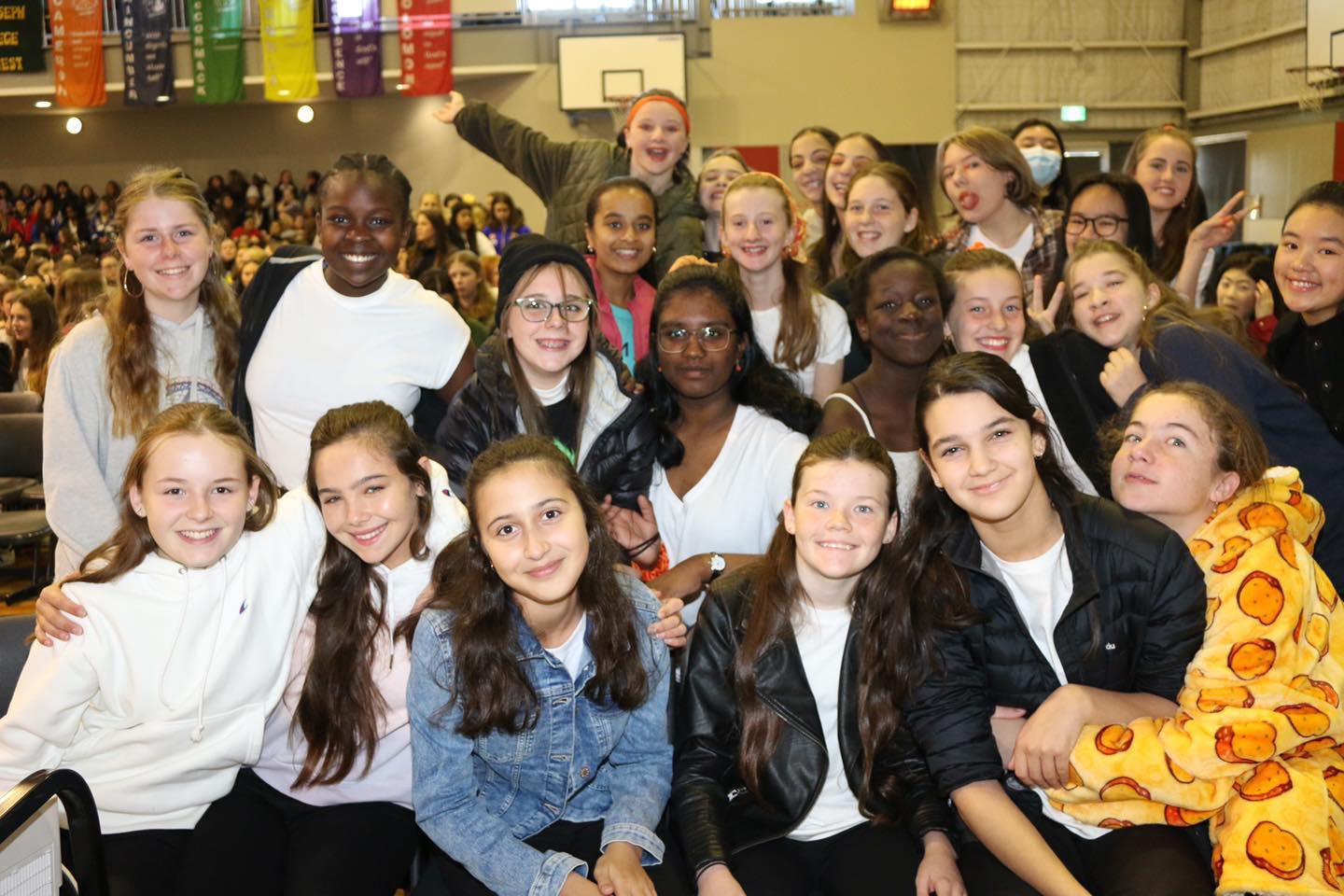Congratulations to all students for the effort they have put into their studies in recent weeks. As the semester concluded, students were involved in lots of assessment of student learning. This is intended to be a very positive experience for students requiring organisation, focus and concentration.
Exams are only one measure of how students are progressing in their learning and, when results are released, it is important parents are mindful of this. The College Learning Management System (CANVAS) provides a progressive and up-to-date picture of your daughter’s academic progress. This includes achievement levels and feedback in assessment tasks.
The feedback from exams and SACs is an integral part of the learning cycle. In order to add value to the exam experience, regardless of the result, it is important that students and parents/carers engage in a reflective conversation about what they have learnt from the experience and how students approached their studies. The most effective learners are those who are able to respond to feedback, thus encourage students to follow up this feedback with their subject teachers to develop strategies they can implement in second semester.
Term 3 is an exciting time with the opportunity for students to consolidate their learning and the opportunity to engage with new concepts and skills. With the benefit of results from Semester 1, students are encouraged to reflect on what they have achieved and set new goals for their learning in Semester 2.
End of Semester Reports
Semester 1 reports will be available in the first week of July. The details providing access to parents and carers online will be communicated to families.
The reports provide feedback from each subject teacher (and Learning Mentor) regarding your daughter’s achievements during Semester 1.
One element of each subject report is the student’s approach to learning. Approaches to learning are viewed as important behaviours that when carried out to a high level, help students to achieve their best. The approaches to learning that teachers provide feedback on are:
The factors considered for ‘Effort’ are persistence, presentation of work and application to tasks.
The factors considered for ‘Behaviour’ are engagement, concentration and contribution.
It is important to have a conversation with your daughter about the report, highlighting particular strengths and areas of improvement.
Subject Selection Process 2022
The process of subject selection is designed to equip students with the information to make decisions about the elective subjects that they select. The extensive process with Year 10 students has begun and in early Term 3, students in Years 8, 9 and 11 will be involved in the process of selecting their subjects for 2022. It is important that students be informed about the available subjects and that the selection of courses is suited to their interests and abilities. An integral part of the process is that parents discuss with their child the subject choices they wish to make for the following year. Information to students will be distributed at Year Level Assemblies. Students will be informed about the pathways selection process and how to complete the selection guides.
Subjects should be selected largely on the following basis and should be done in consultation with parents, teachers and the Pathways Leader:
Victoria is transforming the delivery of senior secondary education with the introduction of a single senior secondary certificate that will offer greater access to quality vocational and applied learning pathways for all students. The senior secondary education reforms aim to provide access to education and training that is relevant, engaging and that delivers in-demand skills for the future world of work, ensuring that students can access education that leads to employment.
Next year, students will still be able to enrol in either the Victorian Certificate of Applied Learning (VCAL) or the Victorian Certificate of Education (VCE). The following year, in 2023, VCAL students will be enrolled in the new VCE Vocational Specialisation or the new foundation pathways certificate which will be introduced to replace Foundation VCAL.
The VCE Vocational Specialisation will be recognised internationally, be valued by employers, and will build on the strengths of VCAL, including providing:
Impact of changes – Course selection in 2022
If students are studying VCAL in 2022, they will transfer into the VCE Vocational Specialisation with credit for completed VCAL subjects in 2023. In 2023, students will continue to study Senior VCAL subjects in the new certificate as part of the implementation process. At the end of 2023, these students will be awarded the VCE Vocational Specialisation if they meet the requirements.
Students who are studying Foundation VCAL over multiple years, including in 2022, will transfer into a new foundation pathways certificate in 2023 with credit for completed subjects. These students will study the new foundation subjects and graduate with the foundation pathways certificate.
The following diagram sets out the senior secondary pathways for students commencing VCE or VCAL in 2022.

In 10 years, Australia will have jobs we haven’t yet dreamt of, but the people that we’ll need the most will be from an already well-known occupation – nursing.
Based on projections from the Federal Government’s Future Focus report, Australia will have between 5.6 million and 6.4 million job openings in Australia in the years to 2025.
Nurses are already in high demand in Australia, with projections showing it is expected to become the fastest growing occupation by 2050.
With an expanding – and ageing – population, and constantly evolving technology, there are likely to be new careers in technical, professional and managerial areas. This is true of the coming years as well as in the next decade.
The following article provides a detailed explanation of the changes in the Australian labour market that will impact pathway choices.
Joanna De Bono, Deputy Principal Learning & Staff






